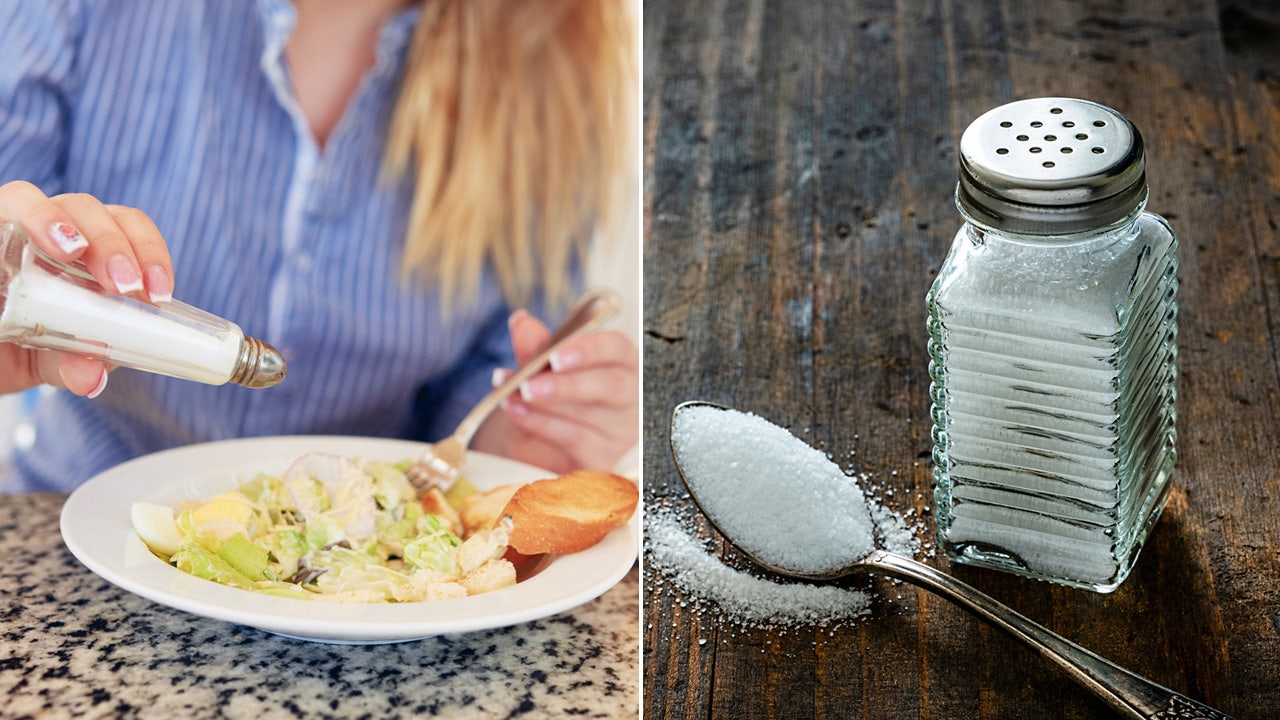An estimated 61.9 million U.S. adults are on blood pressure medication, according to the Centers for Disease Control and Prevention (CDC) — but a new study published in the Journal of the American Medical Association suggests that cutting just 1 teaspoon of salt each day could have the same effect.
Researchers from Vanderbilt University Medical Center, Northwestern Medicine and the University of Alabama at Birmingham studied a cohort of 213 individuals aged 50 to 75 years.
The participants were evaluated while eating their normal foods; they also followed a low-sodium diet for a week and a high-sodium diet for another week.
“Most middle-aged to elderly individuals consume a diet that is very high in sodium,” said Deepak Gupta, MD, associate professor of Medicine at VUMC and co-principal investigator, in a statement to Fox News Digital.
A new study published in the Journal of the American Medical Association suggests that cutting just 1 teaspoon of salt per day could have the same effect as blood pressure medications. (iStock)
“Compared with an individual’s usual diet, a low-sodium diet lowered systolic blood pressure by 6 mm Hg, which is an effect comparable to that of a commonly utilized medication for high blood pressure.”
In the study, the participants reduced their salt intake by about 1 teaspoon a day compared with their usual diet.
ASK A DOC: ‘HOW CAN I PREVENT HIGH CHOLESTEROL?’
One tablespoon of salt contains approximately 2,300 mg of sodium.
“The magnitude of blood pressure reduction with a low-sodium diet was similar across individuals with normal blood pressure, controlled hypertension, untreated hypertension and uncontrolled hypertension,” Gupta told Fox News Digital.
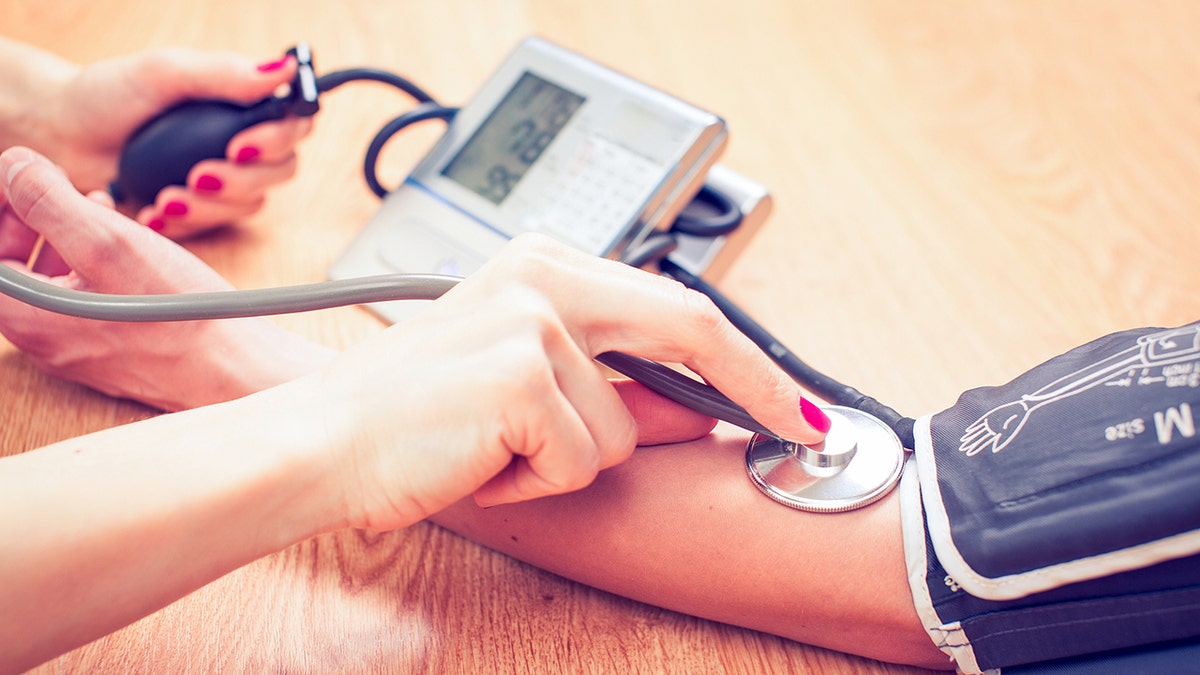
Hypertension is the leading risk factor for death worldwide, affecting more than one billion people globally, according to data from the World Heart Federation. (iStock)
Some 70% to 75% of the study participants saw a reduction in their blood pressure, regardless of whether they were already on medication, according to co-principal investigator Norrina Allen, PhD, professor of preventive medicine at the Northwestern University Feinberg School of Medicine, in a press release.
The results were also presented at the American Heart Association Scientific Sessions 2023 in Philadelphia.
WANT A MORE ACCURATE BLOOD PRESSURE READING? TRY LYING DOWN WHEN IT’S TAKEN, NEW STUDY SUGGESTS
“We previously didn’t know if people already on blood pressure medication could actually lower their blood pressure more by reducing their sodium,” said Allen in the release.
“This reinforces the importance of reduction in dietary sodium intake to help control blood pressure, even among individuals taking medication for hypertension.”
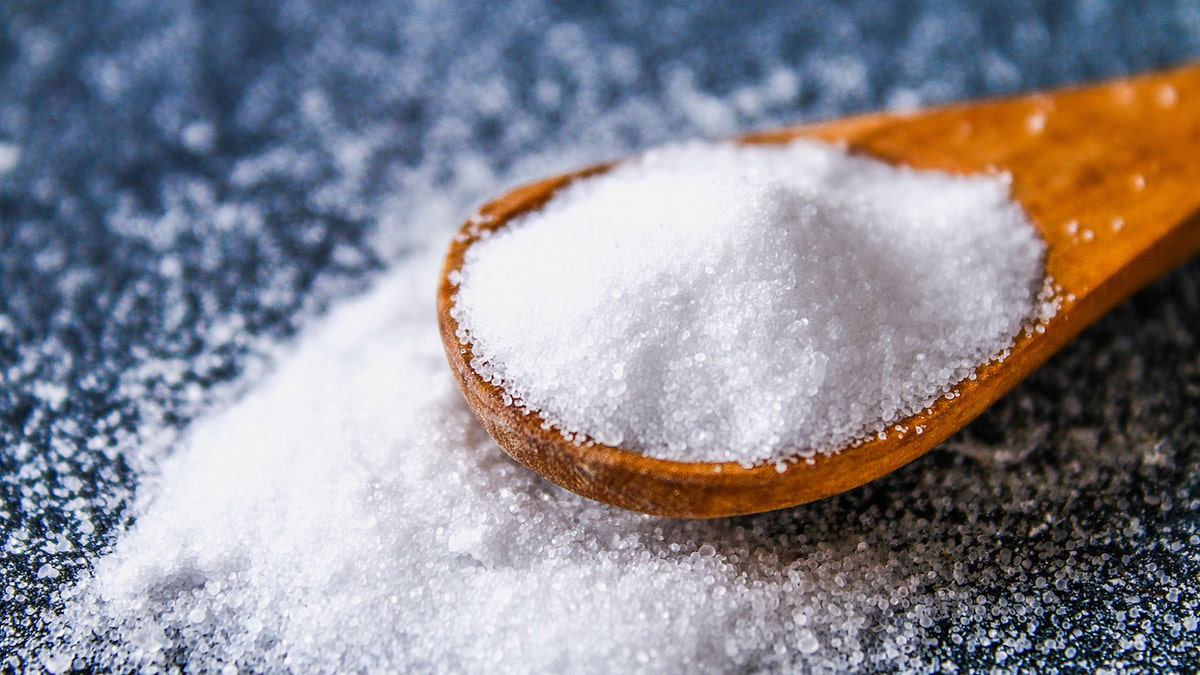
“Sodium is a key player in maintaining blood pressure, as it attracts water and causes more fluid absorption from your gut,” a doctor told Fox News Digital in light of the new study. (iStock)
Also notable is how quickly the participants’ blood pressure dropped in the week that they followed the low-sodium diet.
“The fact that blood pressure dropped so significantly in just one week and was well-tolerated is important and emphasizes the potential public health impact of dietary sodium reduction in the population, given that high blood pressure is such a huge health issue worldwide,” said co-investigator Cora Lewis, M.D., professor of medicine at the University of Alabama at Birmingham, in the release.
“People have a real shot at improving their health through improving their diet in this way.”
“It is particularly exciting that the products we used in the low-sodium diet are generally available, so people have a real shot at improving their health through improving their diet in this way.”
Dr. Bradley Serwer, a Maryland-based cardiologist and chief medical officer at VitalSolution, a company that offers cardiovascular and anesthesiology services to hospitals nationwide, was not involved in the study but reviewed its findings.
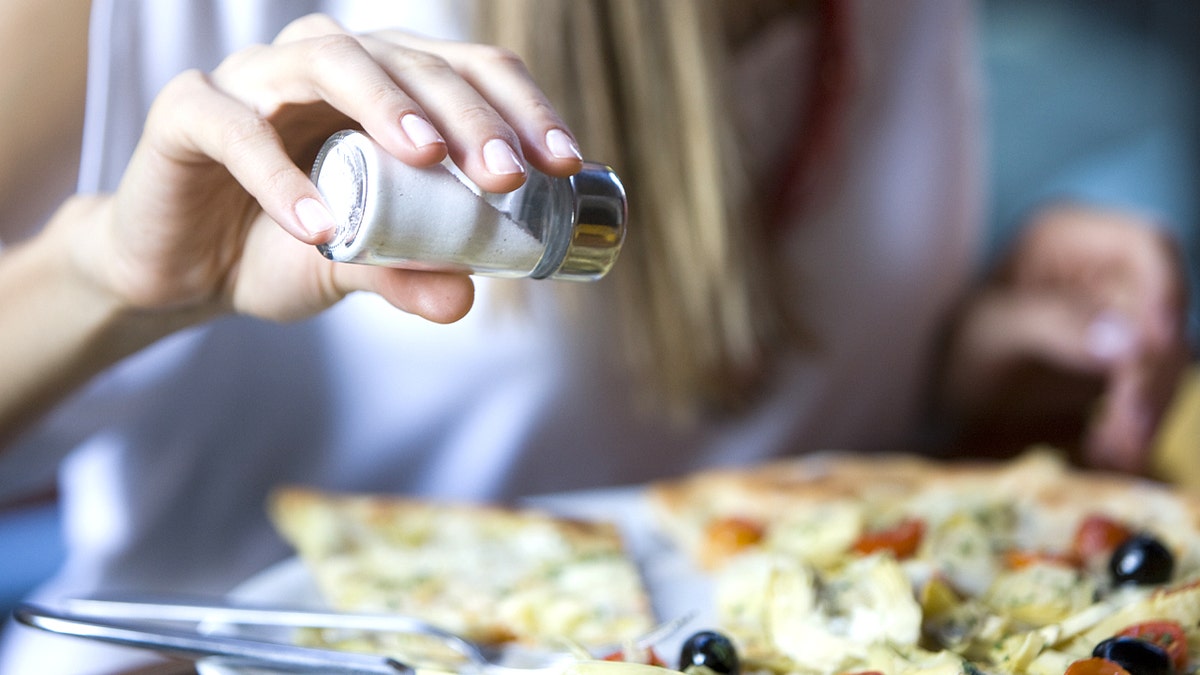
The American Heart Association (AHA) recommends that adults stick to 1,500 mg or less of sodium per day. (iStock )
“This degree of improvement is comparable to taking blood pressure medication, but without any side effects,” he told Fox News Digital.
“Sodium is a key player in maintaining blood pressure, as it attracts water and causes more fluid absorption from your gut,” the doctor went on.
A SINGLE ALCOHOLIC DRINK PER DAY COULD RAISE BLOOD PRESSURE, SAYS STUDY
“This results in more fluid volume in the bloodstream, which in turn results in higher pressures and more workload for the heart.”
The American Heart Association (AHA) recommends that adults stick to 1,500 mg or less of sodium per day.
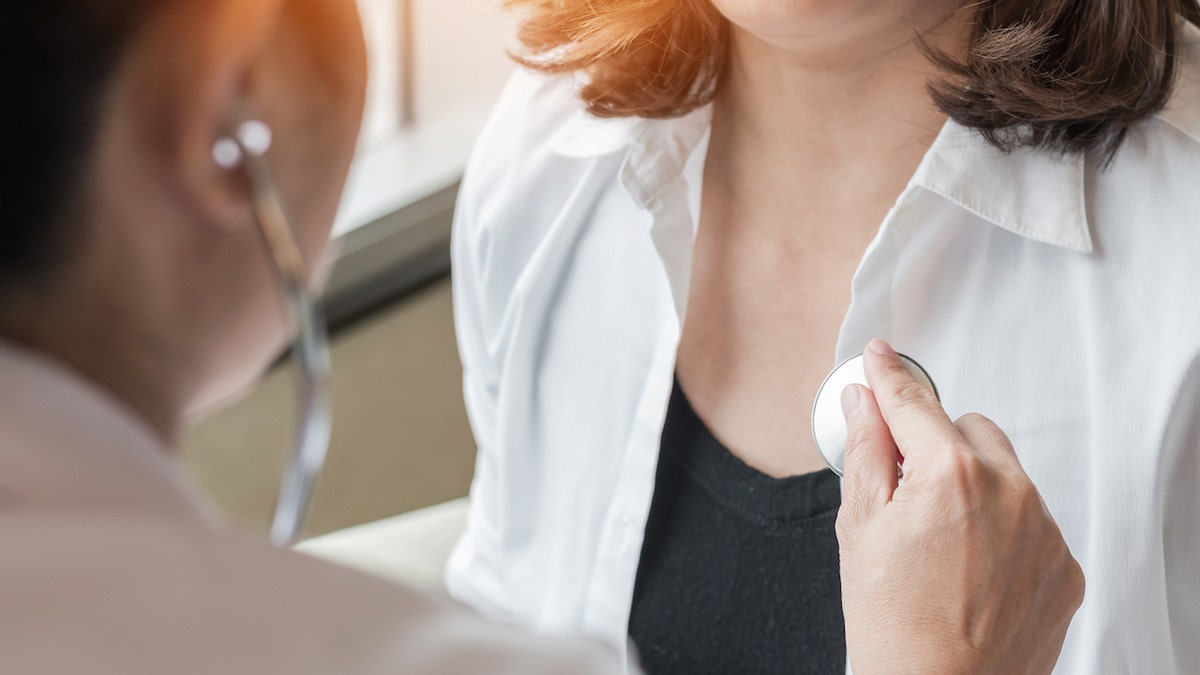
“High blood pressure can lead to heart failure, heart attacks and strokes because it puts extra pressure on your arteries,” one of the study authors warned. (iStock)
The total daily sodium intake recommended by the AHA is 1,500 milligrams, and this study was designed to decrease it even lower than that, Allen said.
Hypertension is the leading risk factor for death worldwide, affecting more than one billion people globally, according to data from the World Heart Federation.
CLICK HERE TO SIGN UP FOR OUR HEALTH NEWSLETTER
“High blood pressure can lead to heart failure, heart attacks and strokes because it puts extra pressure on your arteries,” Allen said in the study’s release. “It affects the heart’s ability to work effectively and pump blood.”
In 2021, hypertension contributed to 691,095 U.S. deaths, per the CDC.
CLICK HERE TO GET THE FOX NEWS APP
“It is known as the ‘silent killer’ and contributes to one in eight deaths worldwide,” Gupta told Fox News Digital.
“Preventing hypertension and controlling blood pressure in individuals with hypertension is important to help people live healthier and longer lives.”
For more Health articles, visit www.foxnews.com/health.


